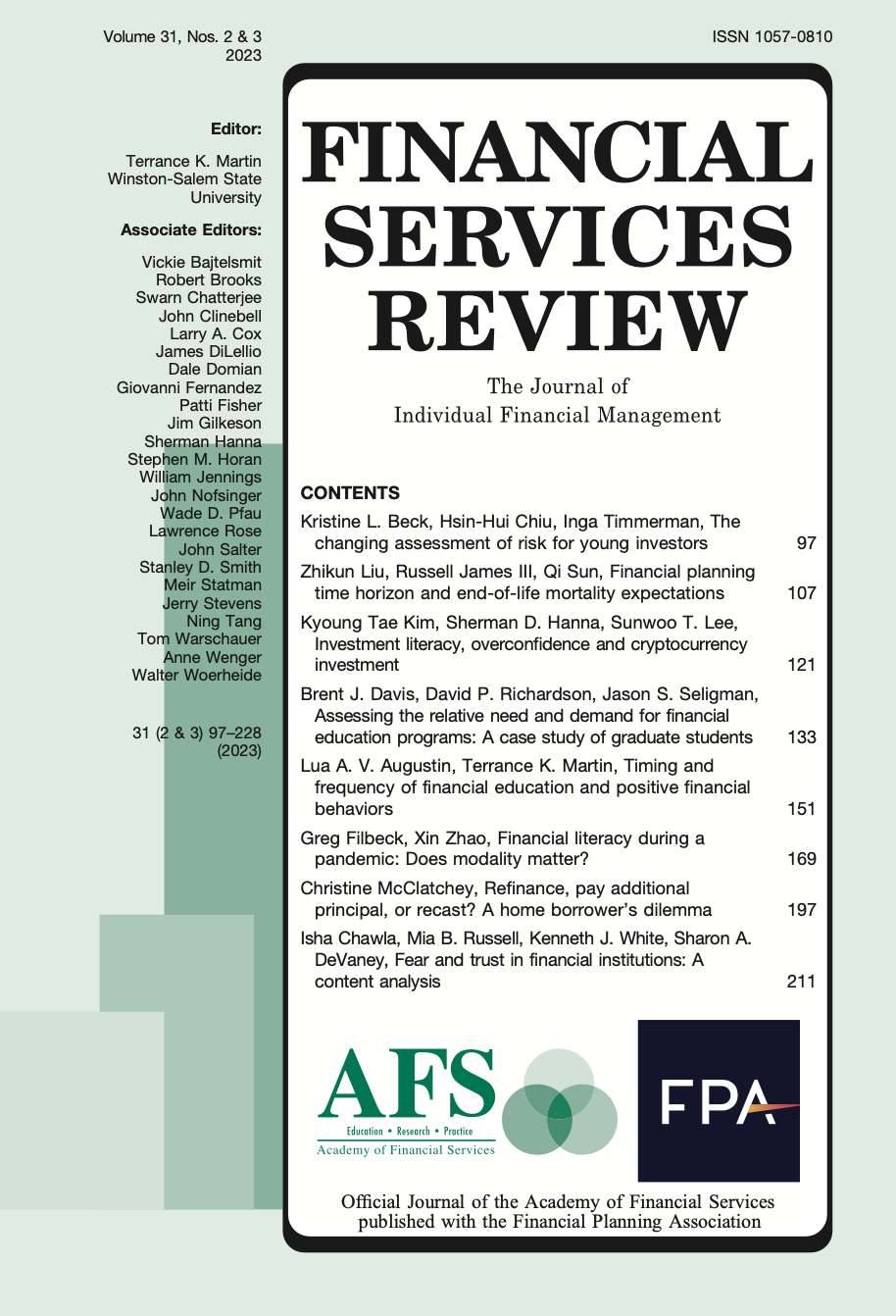Financial literacy during a pandemic
Does modality matter?
DOI:
https://doi.org/10.61190/fsr.v31i2/3.3538Keywords:
Teaching modality, Education, Outreach, Survey, Financial literacyAbstract
We compare the performance of financial literacy programs launched by the CFA Society Pittsburgh in residential settings (2017–2019) with virtual/hybrid programs during the COVID-19 pandemic (2020-2021). Pretest baseline knowledge assessment shows that female students scored lower on subjective and objective financial knowledge questions and self-esteem. However, the global pandemic did not impact the effectiveness of programs based on modality. Students experienced a statistically significant improvement in all four assessment areas of financial literacy. The largest gains in subjective and financial knowledge center on retirement planning. Objective knowl- edge and self-esteem improvements occur most in credit and inflation. Female students experience more significant gains in subjective knowledge, objective knowledge, and self-esteem.
Downloads
Published
How to Cite
Issue
Section
License
Copyright (c) 2023 Greg Filbeck, Xin Zhao

This work is licensed under a Creative Commons Attribution-NonCommercial 4.0 International License.
Author(s) retain copyright and grant the Journal right of first publication with the work simultaneously licensed under a Creative Commons Attribution-NonCommercial 4.0 International License that allows to share the work with an acknowledgment of the work's authorship and initial publication in this Journal.
This license allows the author to remix, tweak, and build upon the original work non-commercially. The new work(s) must be non-commercial and acknowledge the original work.


